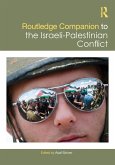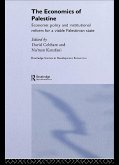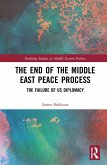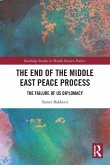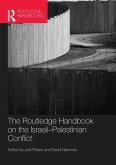This edited volume explores Canada's foreign policy relationship with the Palestinians and broader Middle East Peace Process (MEPP). Canada was intensively involved from 1992 to 2000 in peacebuilding as a mediator in the multilateral part of the MEPP, as chair of the Refugee Working Group, and sponsor of Track II negotiations. This all changed after a significant mid-2000s discursive and policy shift when Canada withdrew from the politics of Israel-Palestine peacebuilding and took a strong partisan stance in favour of Israel.
Through 10 chapters by current and former government insiders and academics with extensive field experience, this unique edited volume offers insight into decades of evolution in Canadian policy toward the Palestinians, MEPP and the Middle East. It arrives at an important time when the international community is reconsidering how it views Israel's entrenched occupation of the Palestinians, after three failed decades of United States-led efforts to find peace through a negotiated two-state model. Today, peace may never have appeared further away after the Trump Administration adopted policies directly contradictory to the MEPP. This proved a test to Canada's own official policy toward Israel and Palestine, its longest running and most important region of engagement in the Middle East.
The chapters were originally published as a special issue of the Canadian Foreign Policy Journal, guest edited by Jeremy Wildeman and Emma Swan.
Through 10 chapters by current and former government insiders and academics with extensive field experience, this unique edited volume offers insight into decades of evolution in Canadian policy toward the Palestinians, MEPP and the Middle East. It arrives at an important time when the international community is reconsidering how it views Israel's entrenched occupation of the Palestinians, after three failed decades of United States-led efforts to find peace through a negotiated two-state model. Today, peace may never have appeared further away after the Trump Administration adopted policies directly contradictory to the MEPP. This proved a test to Canada's own official policy toward Israel and Palestine, its longest running and most important region of engagement in the Middle East.
The chapters were originally published as a special issue of the Canadian Foreign Policy Journal, guest edited by Jeremy Wildeman and Emma Swan.


